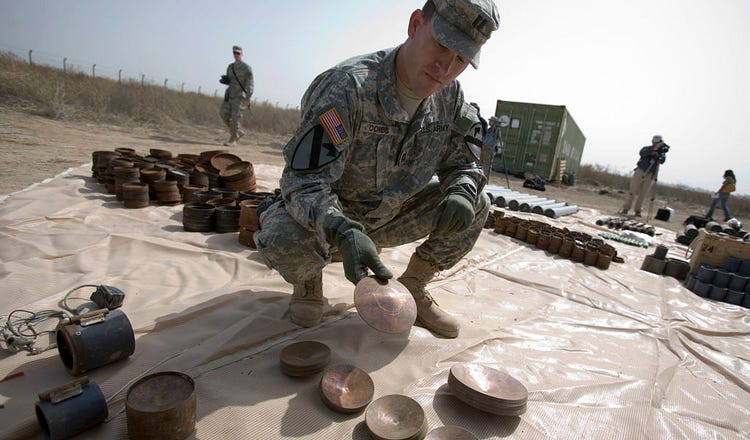American Troops Know: Iran Is Already at War with Us

A U.S. Army soldier in Iraq examines weapons with markings indicating Iranian manufacture. (Photo by Robert Nickelsberg via Getty Images)
Iranian proxies have carried out dozens of attacks on U.S. troops since October 7. ‘We are funding our enemy and sending our service members to be their victims.’
146
The war that began on October 7 when Hamas invaded Israel has been almost universally described in the press as another bloody chapter in the Israel-Palestinian conflict. But that’s only half-true. Or rather, it is only one front of a much broader war—a war that pits Iran and its proxies against America and its allies. And a war that has already cost Am…
Continue Reading The Free Press
To support our journalism, and unlock all of our investigative stories and provocative commentary about the world as it actually is, subscribe below.
$8.33/month
Billed as $100 yearly
$10/month
Billed as $10 monthly
Already have an account?
Sign In

